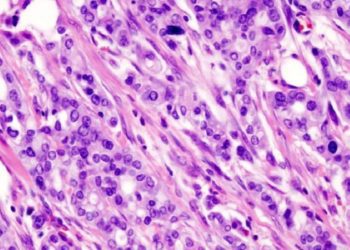Resident involvement may not increase postoperative complications in neurosurgery
1. Resident involvement was not a significant predictor of postoperative complications in the neurosurgical setting.
2. Much of the observed complication rates were due to confounding factors other than resident involvement.
Evidence Rating Level: 2 (Good)
Study Rundown: Residents play an important role in the delivery of medical services to patients. Despite the need for residents to maintain smooth, timely delivery of hospital care, their involvement in hospitals, particularly in the surgical setting, has been a subject of great scrutiny by many patients. In this study, the authors evaluated whether resident participation during surgical procedures had any effect on overall surgical outcomes. The main finding was that resident involvement in the operating room was not a statistically significant predictor for postoperative complications in neurosurgery. Furthermore, the authors found that much of the observed complication rates were due to confounding factors other than resident involvement. An important strength of this study is its large sample size and its comprehensive examination of the relationship between resident involvement and surgical outcomes at the multi-institutional level. However, its limitations include a retrospective study design and the limited data provided in the National Surgical Quality Improvement Program (NSQIP).
Click to read the study in The Journal of Neurosurgery
In-Depth [retrospective study]: A total of 8748 neurosurgery cases from multiple academic institutions across the United States were included for analysis. The NSQIP database was used to identify patients who underwent neurosurgical procedures in 2011 and collect clinical variables including preoperative patient characteristics, intraoperative variables, and 30-day postoperative outcomes. A total of 8748 neurosurgery cases were identified and, of these, residents were involved in 4529 cases. A multivariate regression analysis was then used to estimate the impact of resident involvement on overall complication, surgical complication, medical complication, reoperation, mortality, and readmission. Compared to the “attending alone” group, the “attending and resident” group did not have significantly higher overall complications (OR 1.146, 95%CI 0.961-1.297), surgical complications (OR 1.132, 95%CI 0.825-1.554), medical complications (OR 1.146, 95%CI 0.979-1.343), reoperation (OR 1.250, 95%CI 0.984-1.589), mortality (OR 1.164, 95%CI 0.780-1.737), or unplanned readmission (OR 1.148, 95%CI 0.946-1.393).
More from this author: Double-opposing Z-plasty may improve cleft palate outcomes, Animal regenerative matrix appears safe in breast reconstruction, Elective neck dissection may be unnecessary for adenoid cystic carcinoma, Admission may not be needed following sleep apnea surgery, Comorbidities of head and neck cancer may drive malnutrition
Image: PD/US Marine Corps
©2014 2 Minute Medicine, Inc. All rights reserved. No works may be reproduced without expressed written consent from 2 Minute Medicine, Inc. No article should be construed as medical advice and is not intended as such by the authors, editors, staff or by 2 Minute Medicine, Inc.







![Oxytocin therapy improves social activity in autism mouse model [PreClinical]](https://www.2minutemedicine.com/wp-content/uploads/2015/01/Oxytocin-neurophysin-75x75.png)